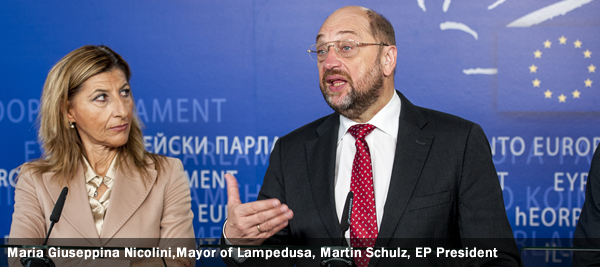“Lampedusa has become a symbol of a European migration policy,” European Parliament President Martin Schulz told EU leaders at the October European Council, in Brussels. “It should also become a turning point for that migration policy”, he added, calling for greater support of the Mediterranean countries, which receive most irregular migrants trying to enter the Union, and greater cooperation, solidarity and flexibility overall.
“At least 20,000 people have died in the last 20 years attempting to reach Europe’s coasts. We cannot allow yet more to die,” said Mr Schulz, expressing Parliament’s “disappointment” at the failure of member states to show the flexibility required to handle the influx of irregular migrants in a humane and effective way.
“We should support the Mediterranean states in taking in refugees and arranging a fair allocation between the member states: this is called European solidarity, and that is what must be on our agenda for today,” the president insisted, noting how only days after the Lampedusa tragedy, the issue was placed right at the end of the summit’s agenda.
Mr Schulz said Europe needed to take immediate action to help those in peril at sea, but also come up with a legal migration system to manage the problem. “Of course Europe cannot save everyone and cannot take in everyone,” he said. “But we are the richest continent in the world. We can do more, particularly if we act together, if we look together for solutions, and shoulder our responsibilities together.”
Parliament itself called for a coordinated EU effort “inspired by solidarity and responsibility” when it debated Europe’s migration policy in light of the tragedy off Lampedusa on 3 October on Wednesday 23 October during this week’s plenary.
